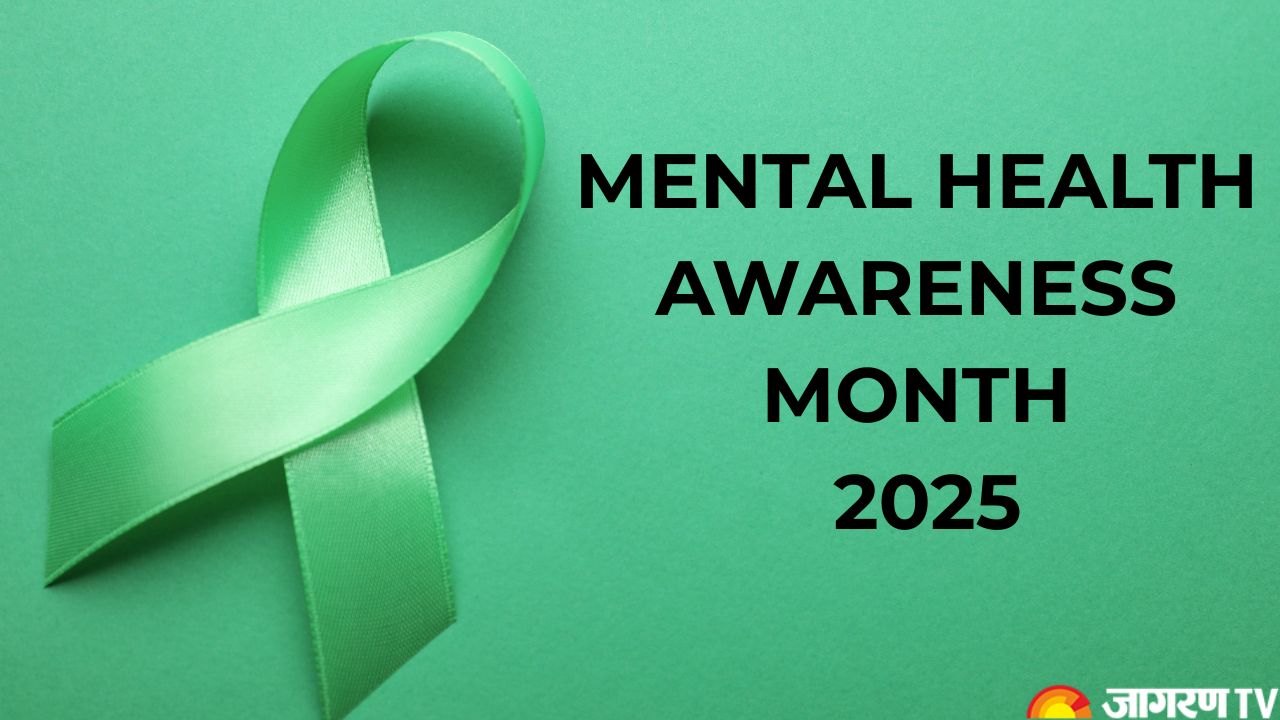Mental Health Awareness Month 2025: The Need to Educate About Mental Health, Importance, Disorders, and More

Mental Health Awareness Month 2025: Mental Health Awareness Month is held during the month of May as a global campaign to highlight the often-overlooked realm of psychological well-being.
Mental Health Awareness Month History
The National Association for Mental Health, currently known as Mental Health America, established Mental Health Awareness Month in 1949 in the United States. This classification stemmed from a deep knowledge of the cultural stigma associated with mental illness, as well as a compelling need to push for improved treatment options and public understanding.
Initially, the primary goal was to raise funds and advocate for better institutional surroundings for people dealing with serious mental illnesses. Over the years, the scope of this observance has grown significantly.
Mental Health Awareness Month 2025 Theme
The national theme for 2025 is “Turning Awareness into Action.” This is a call to action: check in with a friend, phone your legislator, or seek treatment for yourself.
Mental Health Awareness Month Importance
Unfortunately, in today’s world, when physical health is mainly prioritized, psychological well-being might be put in the background. Mental Health Awareness Month serves as a timely reminder of the fundamental link between mental and physical health.
-
Mental health disorders are significantly more frequent than previously thought, impacting people of all ages, backgrounds, and socioeconomic statuses. Increased understanding helps to normalize these experiences and promotes open communication.
-
Mental and physical health are intricately linked. Compromised mental well-being can contribute to the appearance of physical diseases, while physical health difficulties can have a negative impact on psychological states.
-
Discrimination is a strong barrier for those seeking mental health care. Individuals may be hesitant to seek help because they are afraid of being judged, discriminated against, or isolated from others. Awareness programs aggressively seek to eliminate these harmful perceptions.
-
Individuals are empowered via education to build a thorough understanding of their own mental health, notice potential warning signs, and take proactive steps to seek help or assist others.
-
Collective public knowledge can result in increased societal demand for improved mental health services, affecting policy development and budget allocation decisions.
-
Mental Health Awareness Month creates a more compassionate and supportive society for people dealing with mental health issues by spreading knowledge and sharing personal experiences.
Mental Health Disorders
Mental health refers to a wide range of problems that influence an individual's emotional state, cognitive processes, and behavioral habits. It is important to acknowledge them as valid health concerns that necessitate understanding, compassion, and expert assistance. Common categories of mental health problems are:
Schizophrenia
Schizophrenia is defined by substantial deficits in perception and behavioural abnormalities. Symptoms may include chronic delusions, hallucinations, disorganized thinking, very disorganized behavior, or acute agitation. People with schizophrenia may have ongoing impairments in cognitive functioning.
Anxiety Disorders
These are characterized by high levels of fear, worry, and apprehension. Examples include generalized anxiety disorder, panic disorder, social anxiety disorder, and specific phobias.
Psychotic Disorders
These disorders include a disconnection from reality. Schizophrenia is a prominent example, with hallucinations, delusions, and disorganized mental processes.
Eating Disorders
Anorexia nervosa, bulimia nervosa, and binge-eating disorder are examples of disorders with dysfunctional eating behaviours and distorted perceptions of body image.
Obsessive-Compulsive Disorder (OCD)
This condition is distinguished by the presence of persistent, intrusive thoughts (obsessions) that result in repetitive behaviors (compulsions).
Trauma- and Stressor-Related Disorders
These disorders emerge after being exposed to a traumatic or extremely stressful incident. Post-traumatic stress disorder (PTSD) is one obvious example.
Personality Disorders
These are permanent and rigid habits of thought, interpersonal functioning, and conduct that differ significantly from cultural standards.
Related Videos
-
12 May, 2025
Mental Health Awareness Month 2025: How to Manage Mental Health at Workplace, Tips to Handle ...
-
12 May, 2025
Women’s Health: The Journey of Motherhood, From Pregnancy to Postpartum Challenges ...
-
04 May, 2025
-
03 May, 2025
World Laughter Day 2025: विश्व हास्य दिवस पर जानें हंसने के फायदे और ...
यह भी पढ़ें
-
09 Apr, 2023
IPL 2023 : आज हैदराबाद और पंजाब में कौन मारेगा बाजी, ऐसी हो सकती है दोनों टीम की प्लेइंग इलेवन
-
09 Apr, 2023
कोरियन दूल्हे ने इंडियन स्टाइल में की शादी, घोड़ी भी चढ़ा और भांगड़ा भी किया, वीडियो हुआ वायरल
-
09 Apr, 2023
-
09 Apr, 2023
आकांक्षा दुबे मामले में आरोपी समर सिंह को भीड़ ने दौड़ाया, 14 दिन की न्यायिक हिरासत








